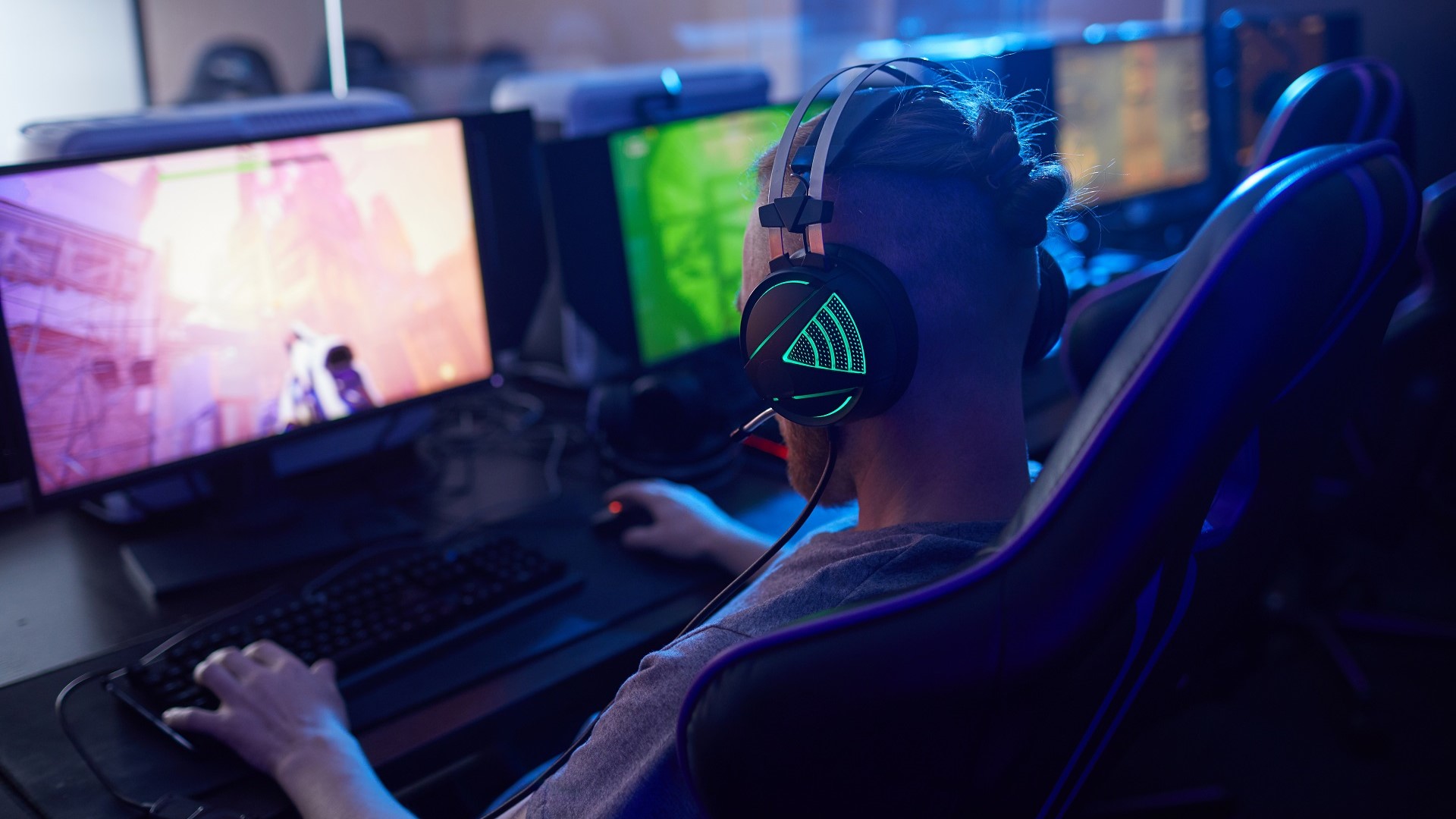Blockchain technology has revolutionized various industries, and gaming is no exception. The convergence of blockchain and gaming has opened up new avenues for gamers, allowing them to not only have fun but also profit from their gameplay. In this article, we will explore the world of blockchain gaming, its benefits, the use of non-fungible tokens (NFTs), popular blockchain gaming platforms, and the opportunities it presents for gamers.
What is Blockchain Gaming?
Blockchain gaming refers to the integration of blockchain technology into the gaming industry. It leverages the decentralized nature of blockchain to provide players with a unique gaming experience. Unlike traditional games where in-game assets are owned and controlled by the game developers, blockchain games allow players to have true ownership and control over their virtual assets.
Benefits of Blockchain Gaming
Decentralization and Ownership
One of the key benefits of blockchain gaming is decentralization. Traditional games are centralized, meaning all game data and assets are stored on a central server controlled by the game developer. In contrast, blockchain games are built on decentralized networks where game data and assets are stored on the blockchain. This gives players true ownership and control over their virtual assets, as the records are transparent, immutable, and cannot be altered by any single entity.
Security and Transparency
Blockchain gaming brings enhanced security and transparency to the gaming industry. Since the game data is stored on the blockchain, it is highly resistant to hacking and fraud. Additionally, the transparency of blockchain allows players to verify the scarcity and authenticity of in-game assets, ensuring a fair and trustworthy gaming environment.
Play-to-Earn Mechanism
One of the most exciting aspects of blockchain gaming is the play-to-earn mechanism. In traditional games, players invest time and effort but do not receive any tangible rewards. In contrast, blockchain games enable players to earn real money or cryptocurrency through various in-game activities. This creates a new paradigm where gaming becomes a potential source of income.
NFTs in Blockchain Gaming
What are NFTs?
NFTs, or non-fungible tokens, are unique digital assets that are stored on the blockchain. Unlike cryptocurrencies such as Bitcoin or Ethereum, which are fungible and can be exchanged on a like-for-like basis, NFTs represent one-of-a-kind items. They have gained significant popularity in the art and collectibles space, and now they are revolutionizing the gaming industry.
Use of NFTs in Gaming
NFTs have introduced a new level of ownership and scarcity to virtual assets in gaming. In blockchain games, NFTs can represent various items such as characters, weapons, skins, or virtual real estate. Players can buy, sell, and trade these NFTs on specialized marketplaces, giving rise to a thriving virtual economy.
Collectibles and Virtual Assets
Collectibles have long been a part of gaming, but blockchain technology has taken them to the next level. With NFTs, players can own unique and rare in-game items that hold real value. These virtual assets can appreciate over time, creating opportunities for players to make a profit by buying low and selling high.
Popular Blockchain Gaming Platforms
Several blockchain gaming platforms have gained significant popularity in recent years. Let’s explore some of the most notable ones:
Axie Infinity
Axie Infinity is a blockchain-based game that allows players to collect, breed, and battle fantasy creatures called Axies. Players can earn in-game rewards and trade their Axes on various marketplaces. Axie Infinity has gained a massive following, with players earning substantial sums of money through gameplay.
CryptoKitties
CryptoKitties was one of the first blockchain games to gain mainstream attention. It allows players to collect, breed, and trade virtual cats. Each CryptoKitty is an NFT, and some rare and unique cats have been sold for significant amounts of money.
Decentraland
Decentraland is a virtual reality platform built on the Ethereum blockchain. It offers a decentralized and immersive gaming experience where players can explore, build, and monetize virtual land and assets. Decentraland has a vibrant community and an active marketplace for virtual assets.
Play-to-Earn: The Future of Gaming
The play-to-earn model has the potential to reshape the gaming industry. As more blockchain games adopt this mechanism, players can expect more opportunities to monetize their gameplay. This shift from a traditional pay-to-play model to a play-to-earn model can democratize gaming and provide financial incentives for players worldwide.
Opportunities for Gamers
Blockchain gaming presents exciting opportunities for gamers. Here are some of the key avenues for gamers to explore:
Earning Real Money
Blockchain gaming allows players to earn real money or cryptocurrency by participating in gameplay activities. Whether it’s through completing quests, participating in tournaments, or trading virtual assets, gamers can turn their passion for gaming into a lucrative endeavor.
Owning and Trading Virtual Assets
In traditional games, players often spend money on in-game items that hold no real value outside the game. In blockchain gaming, players can own and trade virtual assets as NFTs, which have tangible value. This opens up new avenues for players to build valuable collections and profit from their virtual investments.
Participating in the Blockchain Gaming Economy
Blockchain gaming creates an interconnected ecosystem where players, developers, and investors can collaborate and contribute to the growth of the industry. Gamers can actively participate by providing feedback, testing new games, or even investing in promising blockchain gaming projects.
Challenges and Considerations
While blockchain gaming presents exciting opportunities, there are some challenges and considerations to keep in mind:
Scalability and Gas Fees
Blockchain networks, such as Ethereum, currently face scalability issues, resulting in high gas fees and slow transaction times. These limitations can impact the user experience and hinder the widespread adoption of blockchain gaming. However, advancements in blockchain technology, such as layer-two solutions, are being developed to address these challenges.
Regulatory Environment
The regulatory environment surrounding blockchain gaming is still evolving in many jurisdictions. It is important for gamers to understand the legal implications and comply with local regulations when participating in blockchain gaming activities.
Learning Curve and Accessibility
Blockchain gaming introduces new concepts and technologies that may have a learning curve for traditional gamers. The accessibility of blockchain games also depends on factors such as internet connectivity and device compatibility. Efforts are being made to simplify the user experience and make blockchain gaming more inclusive.
Conclusion
Blockchain gaming has emerged as an innovative and potentially lucrative space for gamers. With the integration of blockchain technology, gamers can enjoy true ownership, earn real money, and participate in a vibrant virtual economy. While there are challenges to overcome, the opportunities presented by blockchain gaming are undeniable. As the industry continues to evolve, gamers can look forward to a future where play and profit go hand in hand.




